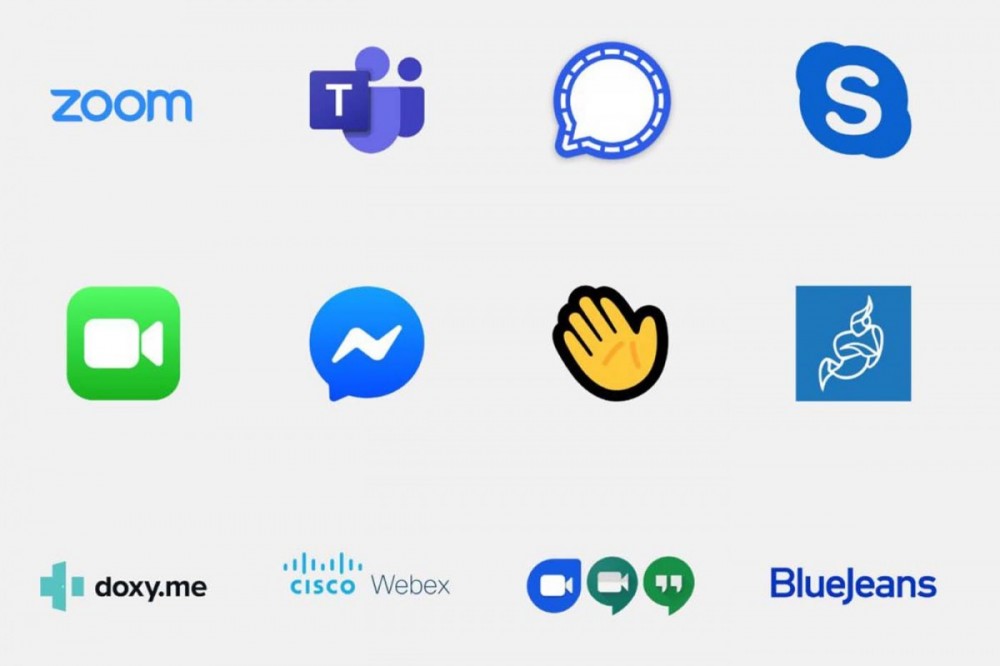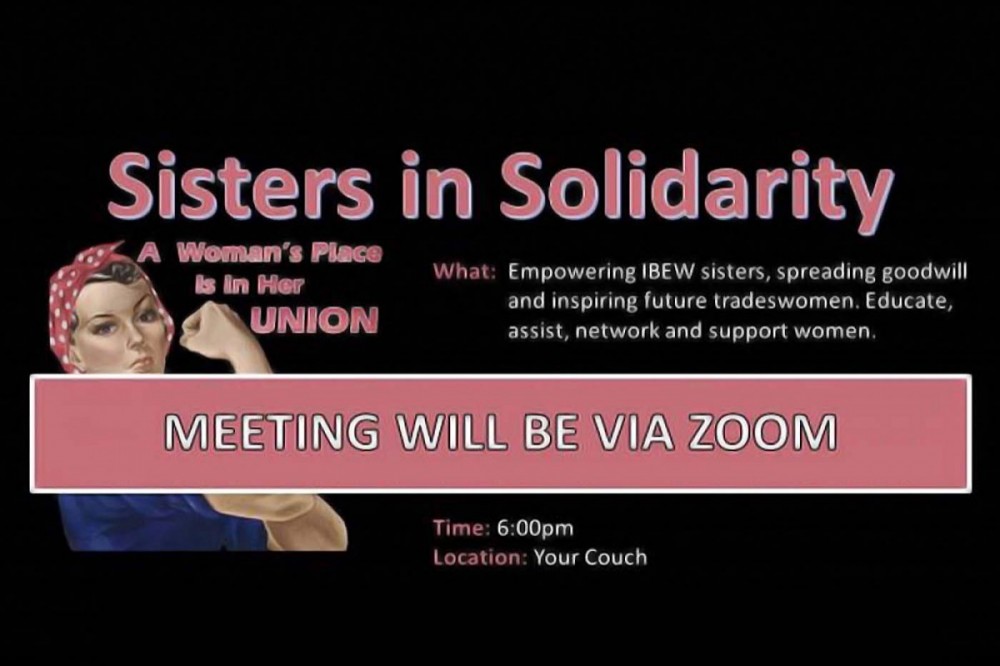Let’s kick things off with kudos to the Canadian Federation of Nurses’ Unions (CFNU), which hosted an online session with the president of National Nurses United, in the U.S. A joint event, it compared what’s happening there with here, and got great reviews. By the time this took place we were all well into the lockdown, so participants’ comfort levels with Zoom, Jitsi and Skype were rising, making such an event less technically challenging than ever before.
That said, and despite so many of us moving online for our social, educational and work-related activities, there has been little international education and organizing going on. Technically we’re now up to the challenge of videoconferencing but, culturally, we’re stuck inside the same old boundaries. A missed opportunity of huge proportions? Perhaps not. Read on.
If you know of a Canadian union that thought to connect with its counterparts in places like Italy or Spain to exchange ideas about how they were dealing with servicing and organizing in a time of pandemic, please let me know. Hopefully there are a few. Or at least a one?
Building Worker Solidarity
The International Trade Union Confederation (ITUC) and the global labour federations have been doing a fine job with online events like the webinar series called “COVID-19: women workers on the frontlines.” But they are, rightly, given what they are and what they do, looking at the big picture. What’s missing in the movement is direct worker-to-worker or local union-to-union connections. The tech is there. The cost is free or low. The only thing standing between us and a huge opportunity for workplace-level solidarity (not to mention tips on keeping our workplaces healthy as things open up) is us. But if you’re a regular Our Times reader you knew that already, didn’t you?
So, a lost opportunity to build international connections? Nope. Workers’ skills and comfort level with online videoconferencing won’t fade with the end of the lockdown.
Making Union Meetings Easier to Attend
If Zooming with the folks in your local means that your meetings are bigger and better, why not Zoom with people working for the same employer in Germany or Hong Kong? The same goes for union staff at all levels trying to learn lessons about the pros and cons of various lockdown-exit strategies. If the shift to Zoom and Jitsi and Skype for meetings means that people, mostly women, with pressing responsibilities in their homes or at other jobs, are suddenly finding it easier, even just plain easy, to participate in their union, why would we not think seriously about making this a standard rather than a COVID-related exception?
We at LabourStart have noticed one unexpected positive of this awful pandemic: as soon as we started tweeting COVID-related union news, our accounts started growing. One of our smaller feeds, the Portuguese-language global news account, doubled in size to almost 2,500 followers during a week back in March. (Feels like years ago, doesn’t it?) The larger accounts grew by similar numbers. Workers are hungry for news that is relevant to them.

ILLUSTRATION: COURTESY THE MOZILLA BLOG
Adapting to a New Normal
Some other folks out there are adapting as well as the CFNU is. Arbitration and other hearings have moved online, despite some concerns about Zoom’s security. (The Mozilla Foundation has upgraded their assessment of Zoom’s security. See Ashley Boyd’s blog post for Mozilla called “Which Video Call Apps Can You Trust?”) As always, the Canadian Law of Work Forum is on top of this trend. See Rono Khan’s article called “Towards a ‘New Normal’: Labour Law Hearings Via Video-conference in the Era of COVID-19.”
It’s more than a bit baffling to hear (and see, thanks to Jitsi) that most unions and most trade unionists are still looking forward to returning to “normal” hearings when the pandemic is over. Why is that? I don’t get it. Do you?
Staying Online After COVID
I do occasional nominee work at arbitrations. Hearings in remote locations often cost twice as much as one would in an urban centre, simply because travel and accommodation costs get rolled into the basic cost of a hearing. Perhaps worse, a one-day hearing can often require three days of an arbitrator’s schedule because travel days have to bookend the hearing day. All this means long delays in getting a hearing going. It might not be appropriate in every instance, but, even post-pandemic, I think there is reason for continuing to hold virtual hearings.
But the folks I talk to, while not hostile to the thought of staying online, are so focused on “getting back to normal” that they don’t seem to be taking the time to sit down and think it through. This is understandable, given everyone’s workload right now. But when do union activists ever get a breather? Now may not be the time to sit down and work it through, but it is the time to decide to set aside some time for a COVID-19 post-mortem that includes some chat about this virtual stuff.
The Digital Lab at the UK’s Trades Union Congress (TUC) has produced a kind of study guide called “Benchmarking Your Union’s Digital Journey.” It continues to evolve and might help a union working through some of this stuff. Check it out.
Lest you think me deep into my pie-in-the-sky-romantic mode, yes, I have seen and heard of some of the unpleasant things that can and are happening as unions move online for meetings. The Feminist Internet Collective has advice that can help. Check out “Defrag: Feminist Internet Digital Clinic,” hosted by Somerset House Studios. As far as the harm that technology can do, read Charlton McIlwain’s MIT Technology Review article, “Of course technology perpetuates racism. It was designed that way.”
Apps, Organizing, and Worker Co-ops
Much as we all love to hate Uber and Foodora and all the online-platform labour exploiters out there, the workers who lost their incomes when some of those sites suspended operations don’t always, at the time of writing anyway, qualify for the support programs out there. There have been a bunch of attempts to bring together co-workers who have likely never met, in order to provide them with some of the tools they need to form a workers’ cooperative and do what their employers used to do. Look at pluralistic.net for Cory Doctorow’s May 22 links on the topic.
Again, this is a good thing, and perhaps a good thing that could and should continue long after COVID-19 (and 20 and 37 and . . .) is just a bad memory. A good thing that could just possibly form part of a union’s organizing strategy. Hint, hint.
Relevant Podcasting
There are some folks making good use of slightly old-school approaches to reach members about the pandemic. The Mexican Electrical Workers Union (SME) is one of my favourites in this regard. They have produced a series of videos aimed at their members, covering everything from pandemic-related workplace-safety issues to broader political analyses. One, about how to install something incomprehensible (unless you’re an electrician) without exposing yourself to COVID-19, had almost 3,500 views in a few days.
The Professional Footballers Australia (PFA) union is using an audio podcast to do the same kind of outreach. And Portugal’s General Union of Workers (UGT) has ramped up the frequency of its Podcast da Comissão de Juventude com Tea Jarc, a pod aimed at young workers. It has made the mental health issues that flow from isolation and working at home without any in-person contact with co-workers, a theme. Another podcast, this one highly recommended by Jim Stanford of the Centre for Future Work, is the Toronto Star’s series, “Hustled: When your boss is an app.”
None of these podcasts have the new and shiny cachet of Zoom, but, like email, they remain effective communication and organizing tools; tools not much in evidence in Canadian unions, I have to say. If that conclusion amounts to fake news, please, please let me know.
Speaking of fake news, check out the annotated list of games provided by the Center for Information Technology and Society at UC Santa Barbara: “Protecting Ourselves from Fake News: Games that Teach about Fake News.” The games can help workers sort the wheat from the current-events chaff.
It wouldn’t be a WebWork column if we didn’t give Facebook a good kick before closing. Kick, kick.
Derek Blackadder is the co-ordinator for LabourStart in Canada and an honourary member of the Toronto Workers' History Project’s Archive Committee. Feedback and ideas for future WebWork topics welcome.
If you like what you're reading and want to subscribe to Our Times, please go here. Thank you!















